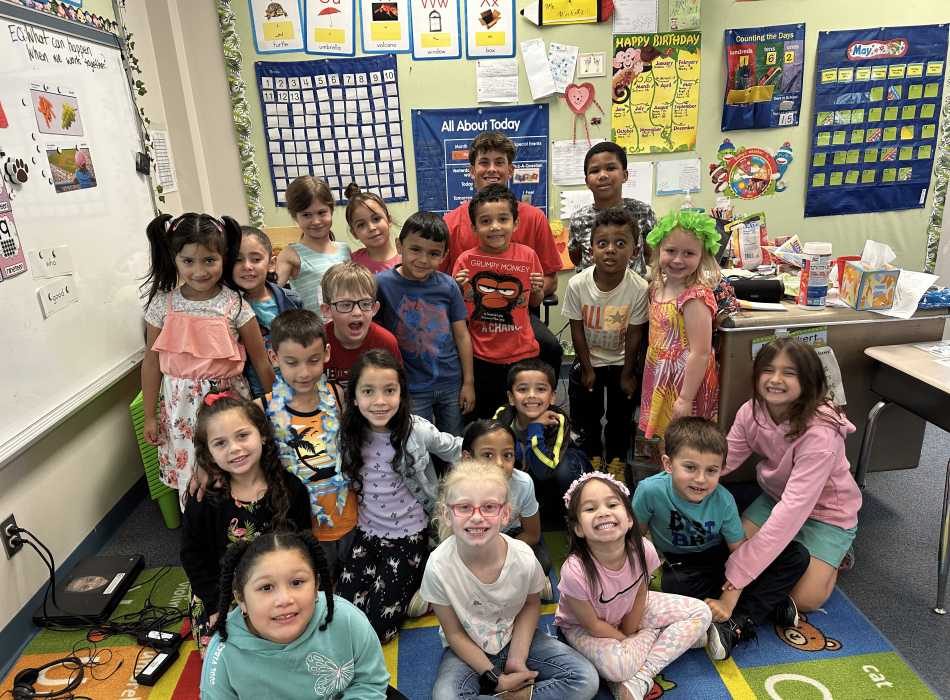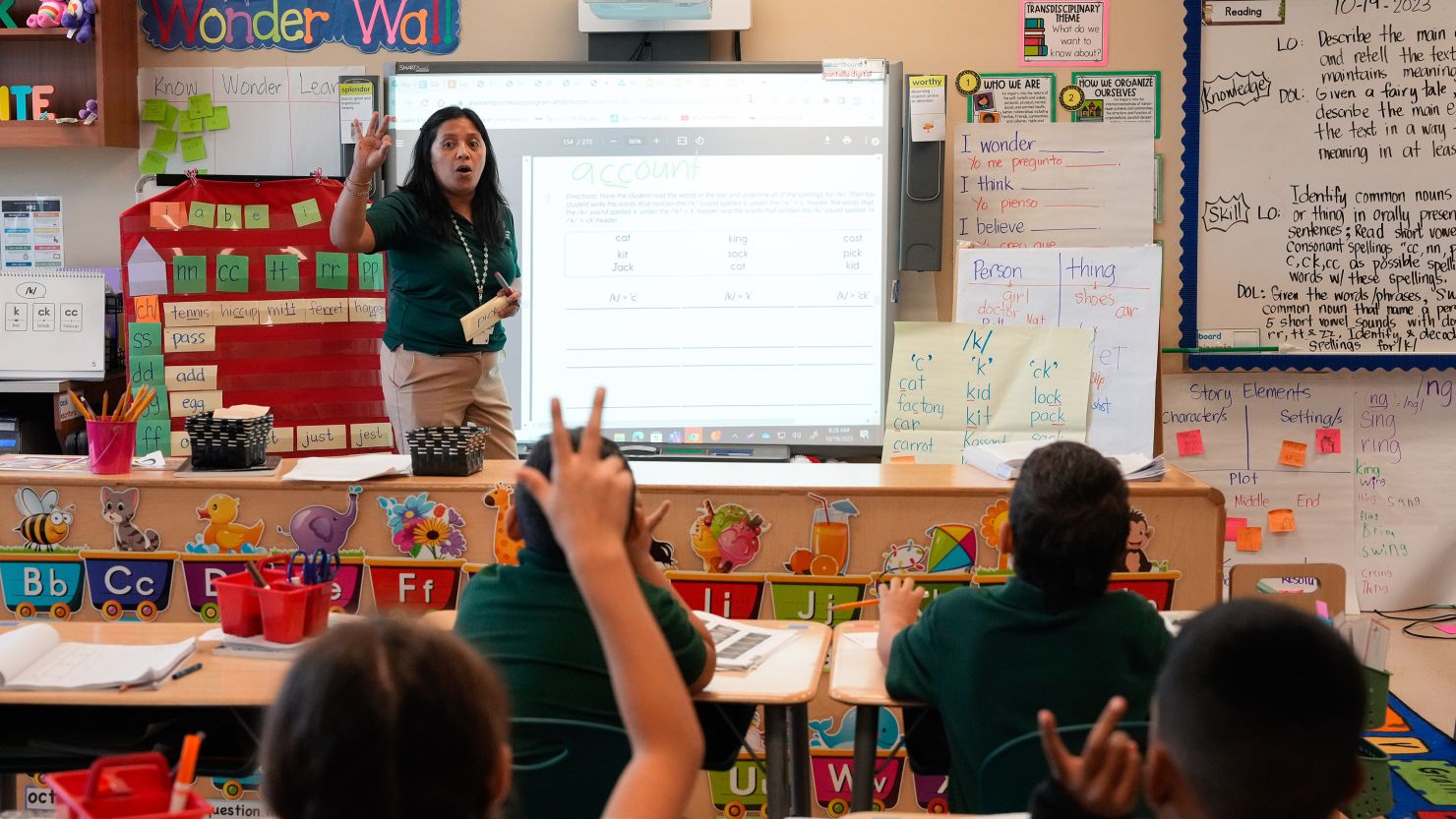How Kindergarten shapes a strong base for lifelong learning
Wiki Article
The Necessary Role of Kindergarten in Child Advancement: Facts and Insights for Moms and dads
Kindergarten functions as an important foundation for youngster development. It offers organized early knowing experiences that greatly influence cognitive, social, and emotional development. Kids involve in tasks that boost language abilities and critical believing while likewise learning to browse social communications. Understanding the impact of this developmental stage is important for parents. What particular advantages does kindergarten give, and how can moms and dads best support their kids throughout this critical time?The Importance of Early Discovering Experiences
Although several may ignore the value of early learning experiences, they play a vital duty in forming a youngster's cognitive, social, and psychological growth. Throughout these developmental years, youngsters engage with their atmosphere, obtaining language abilities and foundational understanding that established the stage for future understanding. Exposure to diverse knowing tasks cultivates essential reasoning, creative thinking, and analytic abilities.Additionally, very early learning experiences assist kids establish self-regulation and strength, outfitting them to face challenges ahead. Involvement in structured learning atmospheres urges curiosity and expedition, essential traits for scholastic success. These experiences additionally introduce children to assumptions and regimens, promoting a sense of protection and belonging.
Study has actually revealed that high quality early education and learning can substantially affect lasting educational end results, decreasing the likelihood of learning difficulties. By emphasizing the relevance of early discovering, instructors and parents can better sustain kids in reaching their full potential, inevitably adding to their total health and future achievements.
Structure Social Abilities and Friendships
Structure social abilities and forming friendships are essential facets of a youngster's growth that commonly emerge from early knowing experiences. In kindergarten, youngsters take part in numerous tasks that promote communication, synergy, and communication. They find out to share, take turns, and work together, which are foundational skills for building partnerships.Structured play and team jobs urge children to navigate social dynamics, fostering an understanding of various viewpoints and the significance of compassion. As they connect with peers, they exercise dispute resolution and create settlement skills, essential for maintaining relationships.
These early social interactions aid children grow a feeling of belonging and area, which is essential for their overall wellness. By creating connections with classmates, children not only improve their social abilities yet likewise acquire confidence in their capacity to relate to others. Preschool offers as an important platform for supporting social advancement and friendship-building.
Establishing Psychological Knowledge
Exactly how do young kids start to comprehend their very own feelings and those of others? In the preschool setting, youngsters participate in various activities that promote emotional intelligence. Via play, narration, and team discussions, they find out to identify and classify their sensations. Educators typically introduce ideas such as compassion by motivating children to assess how others might really feel in different circumstances.Role-playing workouts permit youngsters to practice recognizing psychological cues, cultivating an understanding of social dynamics. In addition, assisted discussions about problem resolution assist them navigate their psychological actions and develop dealing strategies. By connecting with peers in structured settings, children gain insights right into the emotional landscape of their schoolmates, which improves their capacity to create significant partnerships.
Eventually, preschool acts as an important platform for supporting emotional knowledge, equipping kids with crucial abilities for future social interactions and psychological health.
Fostering Freedom and Confidence
In the preschool environment, children not only improve their emotional knowledge yet also start to cultivate self-reliance and self-confidence. This essential developing phase enables you can check here kids to choose, resolve issues, and take obligation for their activities. Engaging in activities that promote autonomy, such as picking their own jobs or joining team jobs, assists youngsters learn to trust their judgment and capacities.As they navigate social communications, youngsters gain confidence in revealing their feelings and thoughts. Kindergarten. Support from peers and instructors fosters a sense of belonging, better improving self-confidence. Activities that need team effort and collaboration also teach kids to value their payments, reinforcing their feeling of competence
Getting Ready For Future Academic Success
As kids involve in organized learning experiences throughout kindergarten, they lay a vital structure for future scholastic success. This early academic stage introduces important skills such as proficiency and numeracy, boosting cognitive development and fostering a love for discovering. Through interactive tasks, kids discover to comply with directions, work collaboratively, and address issues, every one of which are important in higher academic setups.Preschool nurtures social-emotional skills, making it possible for kids to manage their emotions, develop empathy, and build relationships with peers. These capacities contribute significantly to a favorable class environment and reliable discovering.
Research indicates that youngsters who thrive in preschool are most likely to carry out well in later grades, showing the long-term impact of early education and learning. Parents play a considerable function in sustaining their child's kindergarten experience by reinforcing learning at home and motivating interest, thus preparing them for a successful scholastic journey ahead.
Regularly Asked Questions

What Should I Seek in a Great Kindergarten Program?
A great preschool program must stress play-based learning, certified educators, a safe setting, a balanced educational program, possibilities for social interaction, and adult involvement. Evaluating these variables ensures a nurturing space for children's early development and growth.Just How Can I Assist My Child Transition to Preschool?

What Prevail Obstacles Children Face in Kindergarten?
Common obstacles children deal with in kindergarten include splitting up stress and anxiety, difficulty adjusting to organized routines, social abilities advancement, and managing new connections. These issues Bonuses can affect their overall change and discovering experiences throughout this essential adjustment duration.Exactly How Can Moms And Dads Support Kindergarten Learning at Home?
Moms and dads can sustain preschool learning in your home by providing a structured regimen, engaging in interactive analysis, urging creative play, using instructional video games, and cultivating open interaction regarding school experiences to strengthen learning and develop confidence.What Is the Common Daily Arrange in Kindergarten?
A common daily schedule Look At This in kindergarten includes early morning circle time, structured knowing activities, treat breaks, playtime, and story sessions, all created to cultivate social abilities, creative thinking, and fundamental scholastic concepts necessary for early advancement.In the kindergarten setting, children engage in different activities that promote psychological knowledge. As youngsters involve in structured learning experiences during preschool, they lay a vital foundation for future scholastic success. Preschool nurtures social-emotional abilities, making it possible for youngsters to manage their feelings, develop empathy, and develop relationships with peers. Study suggests that youngsters who flourish in kindergarten are much more likely to do well in later grades, demonstrating the lasting influence of early education. Typical challenges youngsters deal with in preschool include separation anxiety, difficulty adapting to structured routines, social skills development, and handling new connections.
Report this wiki page